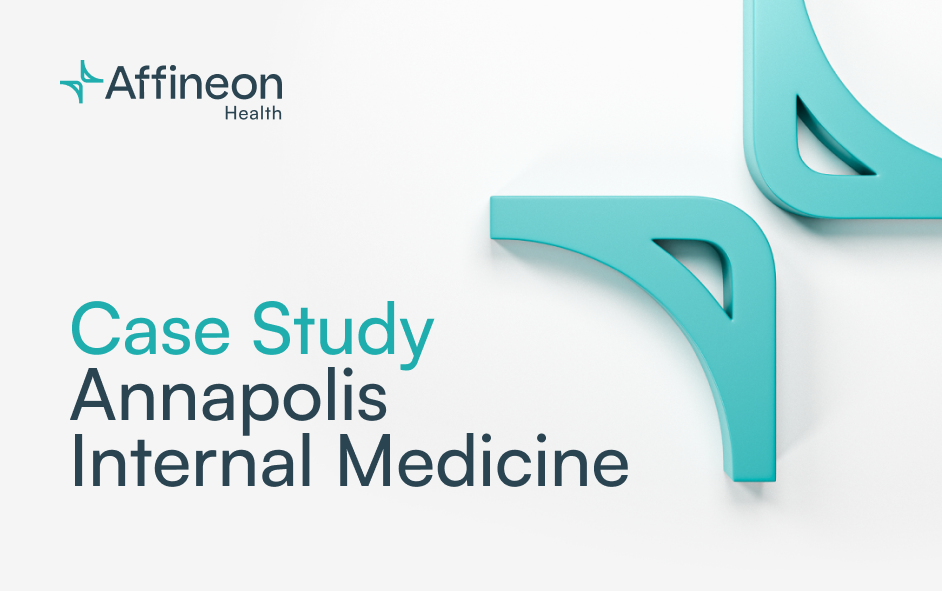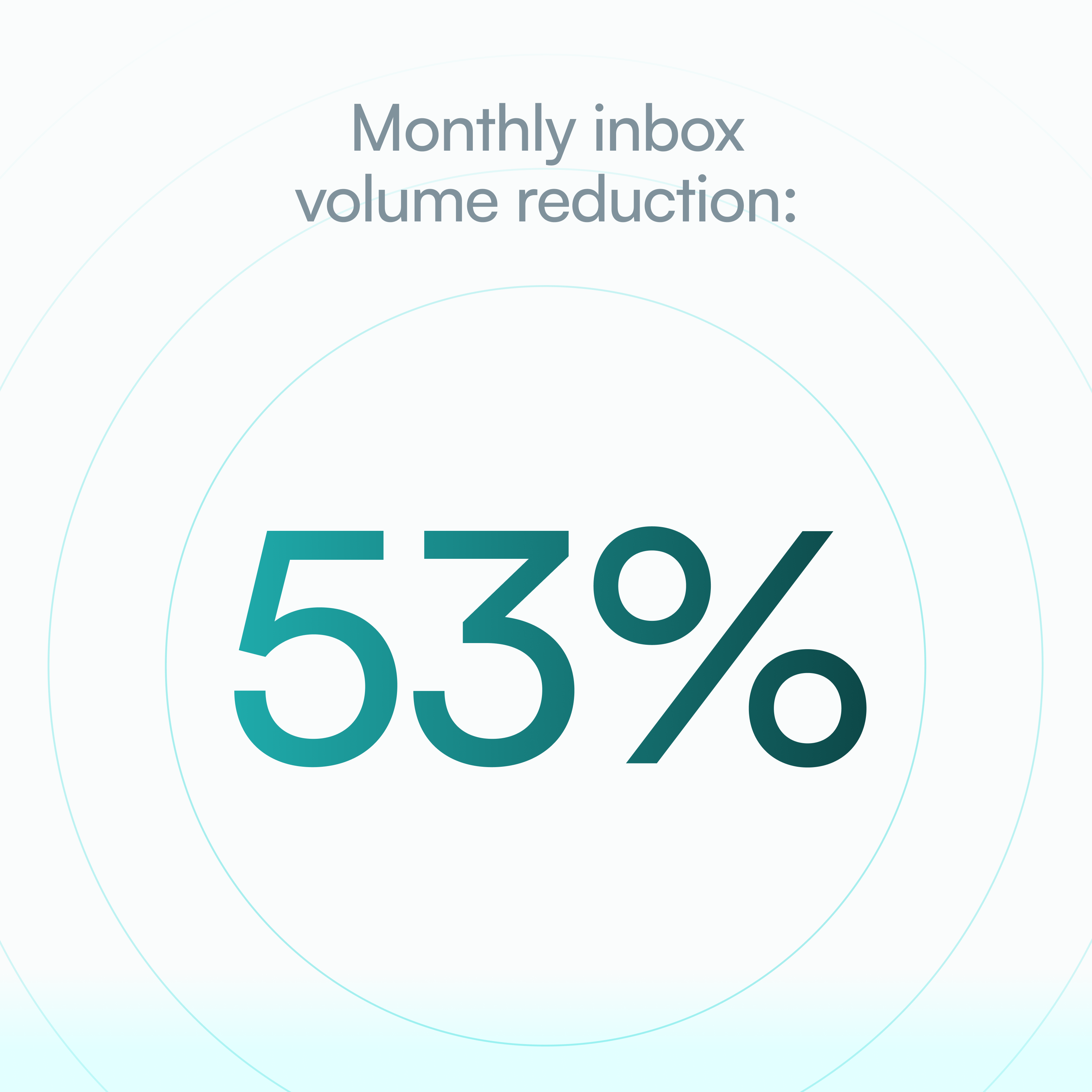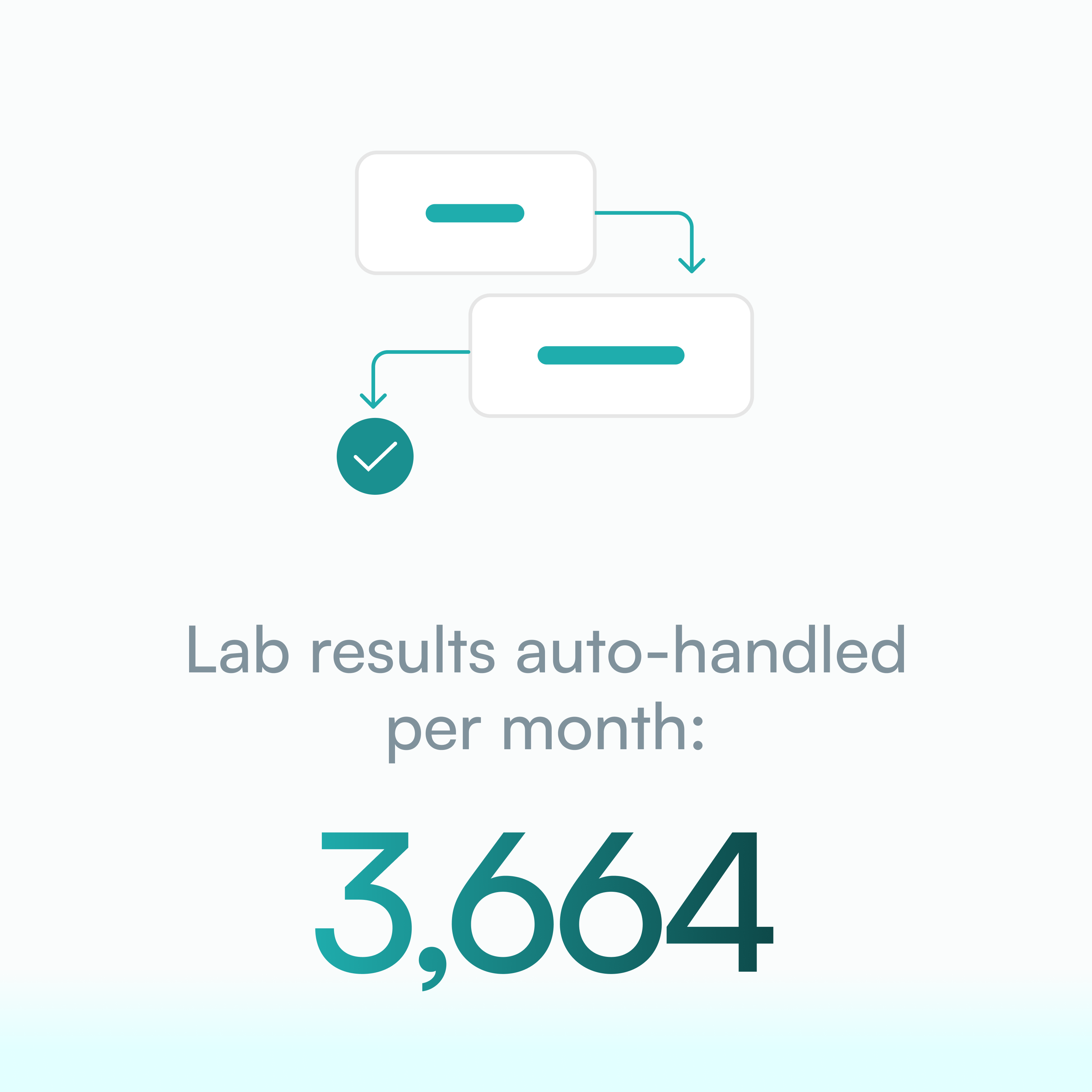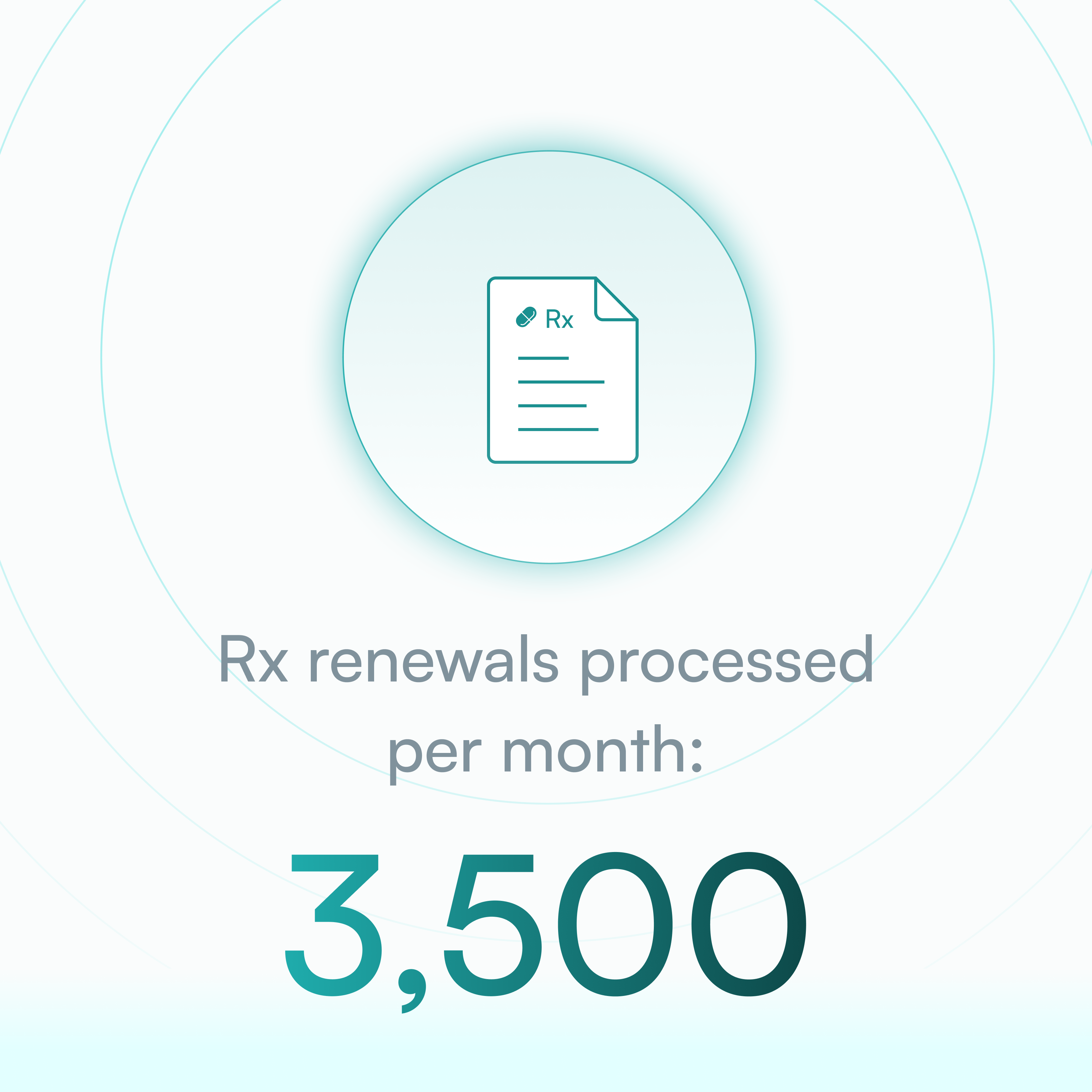Affineon Case Study: How Dr. Abraham Cut His Inbox Workload in Half

Primary care is built on relationships, but what happens when the work keeps doctors outside of the exam room? For Dr. Titus Abraham and his colleagues at Annapolis Internal Medicine, the inbox had become its own second shift. A never-ending stream of labs to review and prescriptions to refill, each one requiring tedious clicks and scrolls.
What should have been simple follow-ups turned into hours of cognitive load. Doctors were digging through EHR charts, checking lab values, confirming follow-ups, and piecing together data scattered across systems. At times, it felt like the inbox never closed, even when the office did.
The problem: Rx renewals and lab results that never ended
The inbox was split between two burdens: lab results and prescription renewals. Each was routine but relentlessly time consuming.
On the lab side, every result demanded review, even the normal ones. Each needed a message drafted and sent to the patient. Most replies were routine, but the process never ended.
On the prescription side, the work was heavier still. Refills weren’t single clicks—they were dozens of micro-decisions across multiple screens. Multiplied by dozens of patients, it became unbearable. A steady drain on time that should have gone to patient care.
Q: What was your inbox like before Affineon?
Dr. Abraham:
Our inbox was mostly routine labs and prescription refills. Every refill meant dozens of micro-decisions across multiple screens. It created an enormous amount of work.
Faced with the constant drain of refill requests and routine labs, Dr. Abraham went looking for a better way.
The solution: EHR workflows that lighten the load
When Dr. Abraham came across Affineon, his priorities were clear: prescription refills had to come first. Labs mattered, but solving the refill burden was the most urgent need.
Q: How did Affineon change the way you handle prescription renewals?
Dr. Abraham:
It really has shortened the workload to fill a prescription. Instead of clicking through various parts of the EMR, it's just one simple page...
Q: How does Affineon surface the information you need?
Dr. Abraham:
For labs I do need to review, Affineon trends the data automatically. Instead of digging back through the EMR, the blood count from three months ago is already there. I can see immediately if the trend is worrisome or not.
For diabetes, it’s incredibly useful. I can trend labs, copy and paste the results, write a quick patient message, and send it in seconds. The same goes for cholesterol. I used to calculate ASCVD risk scores manually, but now the algorithm does it for me. That saves two or three minutes per patient.
Q: How was the learning curve?
Dr. Abraham:
There really isn't a learning curve. The only adjustment is realizing—oh, it really is that easy. You look at one page, press one button, and you're done.
Once the protocols were in place and the team adjusted to the new workflow, the impact was immediate.
The result: Inbox relief and more sustainable patient care
Annapolis's inbox shifted from a wall of routine tasks to a focused list of items that required real clinical attention.

Dr. Abraham:
It's really reduced our workload by at least 50%. When I open my inbox now, I'm not dealing with dozens of prescription refills. My inbox is much lighter, and that has an impact practice-wide.
With the noise removed, doctors could focus on meaningful cases instead of repetitive follow-ups. The work felt lighter, more sustainable, and more aligned with what drew them to medicine in the first place.
Beyond volume, the automation shows up in the daily flow of work.


Dr. Abraham:
A clinician's work should be focused on things that are of concern or urgency—and that's where we are devoting most of our time now.
For Dr. Abraham, the numbers only tell part of the story.
Looking Ahead
At Annapolis Internal Medicine, Affineon reshaped the way the team works each day. The inbox no longer feels like a looming second shift, and the practice has gained what the inbox had been stealing: the ability to practice medicine sustainably.
Asked to imagine life without Affineon, Dr. Abraham didn’t hesitate.
Q: If Affineon disappeared tomorrow, how would you feel?
Dr. Abraham:
I’d be very disturbed. We’d have to go back to where we were, and once you’ve experienced what this can be like, you really can’t go back. It’s a different world.
Q: I would recommend Affineon to anyone who…
Dr. Abraham:
…wants to maintain a sustainable practice and not be fearful of the volume of work. If you want a curated inbox experience that lets you respond to patients’ real needs and focus on urgent items, then Affineon’s tools are the most useful.
Affineon gave Dr. Abraham what the inbox had been stealing: a sustainable way to care for patients.
